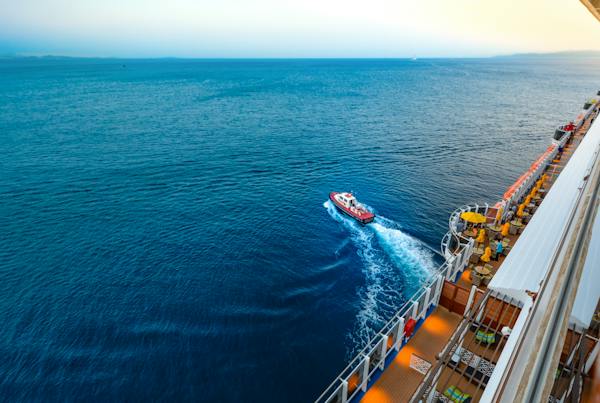For the majority of folks, boating is not an all-year-round sport. Lots of boat owners decide to store their boats away during the colder months of the year. But once you feel that warm weather coming back, especially during the summertime, you know it’s time to get that boat back out on the water again.
Preparing your boat to be stored away during the winter months takes a lot of work and preparation, and when it comes time for de-winterizing your watercraft, you have to make sure you check every detail to make sure everything goes smoothly.
De-winterizing your boat is one of the most vital parts of owning a boat.
If you are looking for a low maintenance boat lift for your watercraft this summer, visit https://www.iqboatlifts.com/.
Check that your Boating License and Registration is up to date
With all that needs to be done before you get your boat onto the water in the summertime, it is easy to forget about the paperwork required.
Boat registration is required by law so that you can operate your boat. This paperwork will have details on the history of the boat owners. Nowadays, you can register or update your boat’s registration online which is very convenient. Make sure your registration paperwork is valid. Create a copy of the registration and keeping a second copy on your smartphone might also prove beneficial.
After a person has completed the course that grants them a boat license they can legally drive the boat in the country. Make sure your license is still valid. Recent changes to the law mean that some states require you to have a license, but this law doesn’t exist in every state. Most adults don’t need a license to operate a boat but rules get stricter for people under the age of 18. There are courses available for minors to help them get a boat license.
Without having the boat’s proper paperwork in order you may be forced to pay a penalty.
Check the Battery
There is nothing more frustrating than bringing your boat out of storage, down to the water, and realizing you are out of juice!
A boat relies on the battery to help many of its components run. If you have kept your boat in storage in a dry area during the winter months, you shouldn’t have any issues when starting the boat in the Summer. Just to make sure, check and test the battery before you bring the boat to the water.
Examine the battery’s terminals to make sure it is free of corrosion. You can use a DC voltmeter to see if the batter has the required voltage. If you have been using the battery successfully for a few seasons, bringing it to a marine technician might help. They will be able to test the battery’s ability to hold a charge before bringing your boat out to the water.
Examine your Boat’s Fluids
One of the easiest ways of making sure your boat’s fluids are in good condition is by checking them before the boat goes into storage. That way you know everything will be okay when you take your boat out during the summer. If you add a fuel stabilizer it will protect your boat and will help you avoid having to drain the boat’s tank.
Check all the following fluid levels to make sure your boat operates safely:
- Oil level
- Gas level
- Coolant
- Power steering
If you think you have found a leak or suspect leaking in an area of the boat, make contact with your marine technician to help solve the issue.
Examine both the Thermostats and the Water Pumps
The water pump on the impeller needs to be changed frequently. You’ll probably need to replace it with a new one approximately every 200 hours. This is a vital part of the boat as it keeps water flowing to help keep the engine cool. Without replacing an old or damaged water pump, it could cause very expensive damage to your boat.
The boat’s thermostat is also very important, as it regulates the water temperature. If it is not functioning correctly, the boat’s engine may be too hot or too cold.
Inspect your hoses for cracks and if you come across any make sure you replace them straight away.
Check all the Cables and Hoses
Expect the boat’s cables and hoses to experience some wear and tear over time. There are a lot of reasons for this, often the weather can play a big part especially if they are made from rubber. The material will gradually break down due to cold weather or strong sunlight.
Check that all hoses and cables on the boat are secure and tight. Examine all the fuel and coolant hoses throughout the boat.
You should check these hoses and cables on a regular basis, not just when you are de-winterizing the boat. Because weather plays a major part in these materials breaking down, damage is very common.
Check the Boat’s Exterior
Records show that approximately 35% of boats sink because of the damages to the boat’s hull. Even when you stored your boat away at the end of last season, lots of problems can still occur while in storage.
Before you bring your boat to the water, examine the exterior thoroughly for damage. Any cracks need to be fixed immediately. Speak with a trained boating expert for advice if you are concerned.
Change the Lower Unit Oil on Your Outboard Motor or Sterndrive
You are supposed to change the lower unit oil at least once a year. You should however change the gearcase oil every 100 hours but to prepare it for summer you definitely need to change it. You should use marine grade oil with semi synthetic blend to prevent the damage. You can follow the simple steps to change it yourself and even servicing the lower unit is also an easy job.
Examine your Trailer
Making sure your trailer is roadworthy and capable of safely bringing your boat to its destination, so a thorough examination is vital.
- If you have bought a new vehicle and have not hitched it to a trailer with a watercraft, make sure you check that the Gross Vehicle Weight (GVW) of your new vehicle allows you to pull the boat.
- Examine the tire pressure of each of the tires. Also, make sure you have a spare tire for both the vehicle and the trailer. If any of the tires need to be replaced, don’t take any risk and change it for a new one immediately. Trailer tires normally need to be replaced every 5 years.
- Make sure all the nuts on each of the wheels are well tightened.
- Examine all the lights on both your vehicle and your trailer. If one is not in working order make sure you replace it before driving. Without having functioning lights you might be forced to pay a penalty or cause an accident.
- Make sure that all the lines, tie-downs, safety chains, etc. are all in perfect working condition. If there are any signs of wear, replace them immediately.
Preparing your trailer and vehicle is a very important task before you get your boat onto the water. Any minor problem could cause a serious accident on the road.
Check your insurance is up to date for your vehicle and that your coverage allows you to have a trailer with a boat. Make sure all taxes and insurance are valid.
Summary
Having your boat in storage can cause all sorts of issues. Make sure you use a high-quality cover, and the storage area is clean. Rodents and other insects can cause damage. Setting traps and checking them frequently over the wintertime will make it easier for you to de-winterize your boat during the summer.

